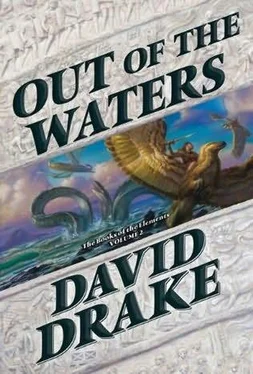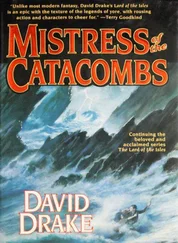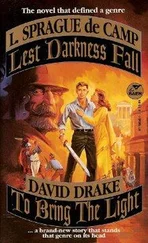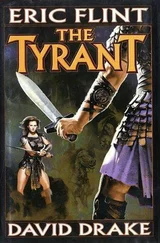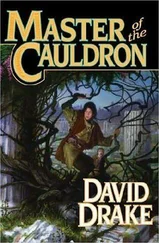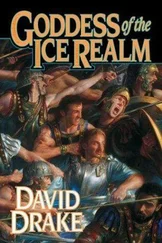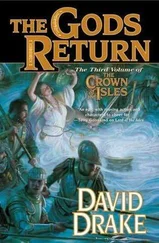David Drake - Out of the waters
Здесь есть возможность читать онлайн «David Drake - Out of the waters» весь текст электронной книги совершенно бесплатно (целиком полную версию без сокращений). В некоторых случаях можно слушать аудио, скачать через торрент в формате fb2 и присутствует краткое содержание. Жанр: Фэнтези, на английском языке. Описание произведения, (предисловие) а так же отзывы посетителей доступны на портале библиотеки ЛибКат.
- Название:Out of the waters
- Автор:
- Жанр:
- Год:неизвестен
- ISBN:нет данных
- Рейтинг книги:3 / 5. Голосов: 1
-
Избранное:Добавить в избранное
- Отзывы:
-
Ваша оценка:
- 60
- 1
- 2
- 3
- 4
- 5
Out of the waters: краткое содержание, описание и аннотация
Предлагаем к чтению аннотацию, описание, краткое содержание или предисловие (зависит от того, что написал сам автор книги «Out of the waters»). Если вы не нашли необходимую информацию о книге — напишите в комментариях, мы постараемся отыскать её.
Out of the waters — читать онлайн бесплатно полную книгу (весь текст) целиком
Ниже представлен текст книги, разбитый по страницам. Система сохранения места последней прочитанной страницы, позволяет с удобством читать онлайн бесплатно книгу «Out of the waters», без необходимости каждый раз заново искать на чём Вы остановились. Поставьте закладку, и сможете в любой момент перейти на страницу, на которой закончили чтение.
Интервал:
Закладка:
"Lord Varus?" Pandareus said. "Are you all right?"
"I-" Varus said. He rubbed his eyes with the back of his free hand. "Did I disappear, Master?"
"No," said Pandareus, "but you stopped where you were and put the lantern down. You didn't appear to hear me when I spoke to you."
"Ah," said Varus. "Was I, that is, was this for long?"
"Not long," said Pandareus. "Not much longer than it took you to pick up the lantern again. Did something happen to you?"
"We may as well go back," Varus said, turning. He felt queasy, as though he had grasped for a handhold while falling and felt his fingers slip off it. All that remained now was to hit the ground. "I thought I met Menre and that he gave me a book that he said I would need. That we would need. But I don't have it now."
"Can you remember any of it?" Pandareus said, leading through the central room of the chapel. The light from above was enough for him to avoid the benches now that they had been underground for long enough.
"I didn't read it," Varus said, feeling an edge of irritation. "I just glanced at the opening columns. And even if I had-"
Suddenly, unbidden, the phrase, "Let not the Destroyer be allowed to prevail over him!" leaped into his mind. He shouted the words aloud.
Pandareus glanced back at him and nodded in satisfaction. "It appears to me, Lord Varus," he said, "that you have what we need. What all the world needs."
They walked up the stairs together, as they had gone down.
"This is the place?" Corylus said. Pulto had stopped at a sunken place on the hillside, but he hadn't said anything for the long moments while his master waited politely for him to speak.
"It's where Anna showed me this morning," Pulto agreed in a dull voice. He turned to face Corylus. They carried a lighted lantern, but there was moon enough to show their features clearly.
"Master," Pulto said, "we shouldn't be doing this. I'm not a god-botherer, you know that, but it'd be better to lose than to win by the kind of magic that you find in graveyards. Though it was my own Anna as sent us here."
Corylus thought about the vision of Typhon, wrecking the world it crawled across. "No, old friend," he said. "Losing would be worse, for the Earth, at any rate. For me personally-"
He shrugged. "I don't know what it means for me personally. It doesn't matter. But Pulto? You can wait for me back where we crossed the old wall. I won't think the less of you if you're unwilling to be involved in this sort of thing."
That wasn't really true, but Corylus knew that it should be true. He'd known a man, a centurion with scars marking every hand's-breadth of his body-he couldn't remember the tale of half of them-who had frozen in mumbling fear when a wolf spider ran up the inside of a leather tent and stopped directly over him. If magic disturbed Pulto in the same way, well, there was more reason for it.
Pulto snorted. "I'm afraid," he said, "but I'm a soldier, so what's being afraid got to do with anything? And I've done plenty of things this stupid before, begging your pardon, master. Only-"
His smile was forced, but the fact he could force a smile spoke well of his courage and his spirits both.
"-this time I'm sober. Which is maybe the trouble, but it's one I plan to solve right quick when we're done with this nonsense."
Corylus grinned. "I'll split at least the first jar with you," he said. "Now let's get to work."
The tombs of Carce's wealthy ranged along all the roads out of the city. The great families had huge columbaria, dovecotes; so called because the interiors were covered with lattices to hold urns of cremated ashes.
Lesser, more recently wealthy, households had correspondingly smaller monuments. Often there was just a slab with reliefs of the man or couple and a small altar in front to receive the offerings brought by descendents.
But the poor died also, and even a slave might have friends and family. The slope of the Aventine outside the sacred boundary of the city received their remains. Small markers, generally wooden but occasionally scratched stones, dotted the rocky soil. Badly spelled prayers or simple names which were themselves prayers for survival, lasted briefly and were replaced by later burials and later markers, just as other wretched souls had moved into the tenements that the dead had vacated earlier.
By day this end of the Aventine was a waste of brush which feral dogs prowled and where crows and vultures croaked and grunted. Fuel for pyres was an expense which the poor skimped on, as they skimped on food and clothing during life. At night occasional humans joined the beasts, witches who searched for herbs which had gained power through the presence of death; and who sometimes gathered bones as well, to be ground and used in darker medicine.
No one would disturb Corylus and his servant, but Pulto had brought swords for both of them among the other tools: the mattock and pry bar, ropes and basket. By concentrating on the thought of human enemies, Pulto could push the other dangers from his mind.
"It's a well, I think," Pulto said, loosening up now that Corylus had broken the glum silence. "Under a lot of crap and full of crap, of course, but that's what I thought by daylight."
"Right," said Corylus, thrusting the blade of his mattock between two stones gripped by vines and levering upward. "People throw things down the well when they're in a hurry to leave. We should be able to find what we're looking for and get out before the wine shops close!"
Among the things people threw into wells were bodies, depending on who the people were. Well, they'd deal with that if they had to.
Corylus put on his thick cowhide mittens. He didn't need them for the tools-he spent enough time wielding a sword in Saxa's exercise ground that his calluses protected him-but the loosened rocks were often jagged or wrapped in brambles. He didn't mind a few cuts and scratches, but it was easy to wear protection when throwing rubble down slope.
He and Pulto worked together briefly, but when they had excavated the fill a few feet down, Corylus got into the shaft and filled baskets for his servant to lift and empty from the top. It was a well shaft as Pulto had guessed. The coping of volcanic tuff had mostly collapsed inward, but the remainder was cut through the hillside's soft limestone. There was no way to tell how old it was, but it was certainly old.
Corylus lost track of everything except the task. This was monotonous but not mindless work, much like ditching or cutting turf to wall a marching camp. He had to decide each next stroke, sometimes scooping loose dirt with the blade of the mattock, sometimes using the pry bar to separate rocks that were wedged together.
Once he found a human jaw. There wasn't room in the shaft to leave it, but he made sure it was on the bottom of the next basketful he sent up to Pulto.
Corylus wasn't sure how long he had been working-it didn't help to think about that, since he would work until the task was finished-but his feet were by now some ten feet below the level of the coping. He bent to work more of the light fill-gravel and silt-loose with the mattock while Pulto hauled up the basket with the latest load.
He stopped and put the mattock down. The light at this depth wouldn't have been good even without Pulto leaning over the top, so Corylus tried the seam between stones with his fingers and found what he thought his eyes had told him: a slot wide enough for passage had been cut in the living rock, then closed with a fitted stone with a stone wedge above it.
"Pulto?" Corylus called. "Send the lantern down to me on a cord."
Pulto only grunted in reply, but he jerked the basket up more abruptly than usual-a long task was better handled at a steady pace than by fits and starts. Moments later the lantern wobbled down, tied to the end of Pulto's sash. They could have passed it directly from hand to hand, but not without searing somebody's fingertips on the hot bronze casing.
Читать дальшеИнтервал:
Закладка:
Похожие книги на «Out of the waters»
Представляем Вашему вниманию похожие книги на «Out of the waters» списком для выбора. Мы отобрали схожую по названию и смыслу литературу в надежде предоставить читателям больше вариантов отыскать новые, интересные, ещё непрочитанные произведения.
Обсуждение, отзывы о книге «Out of the waters» и просто собственные мнения читателей. Оставьте ваши комментарии, напишите, что Вы думаете о произведении, его смысле или главных героях. Укажите что конкретно понравилось, а что нет, и почему Вы так считаете.
